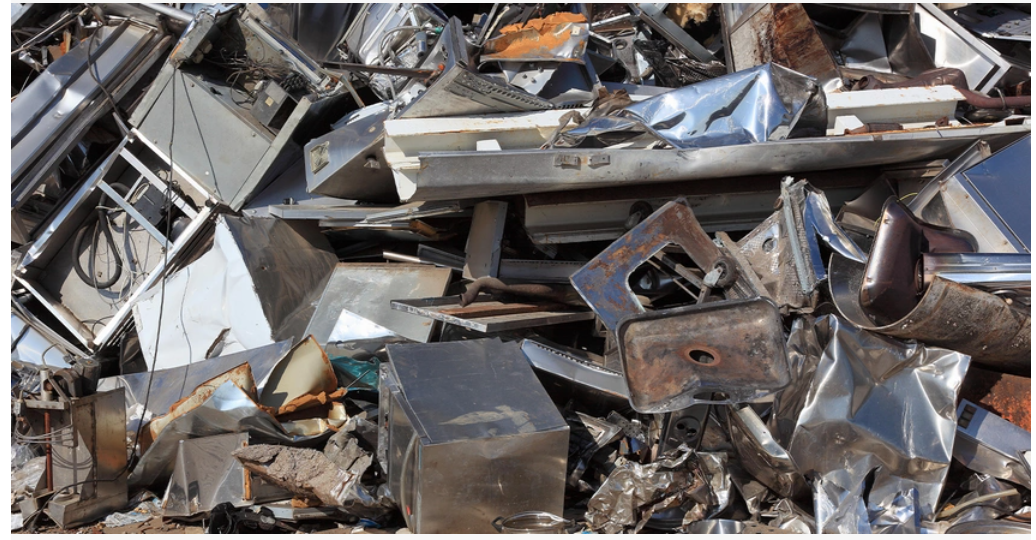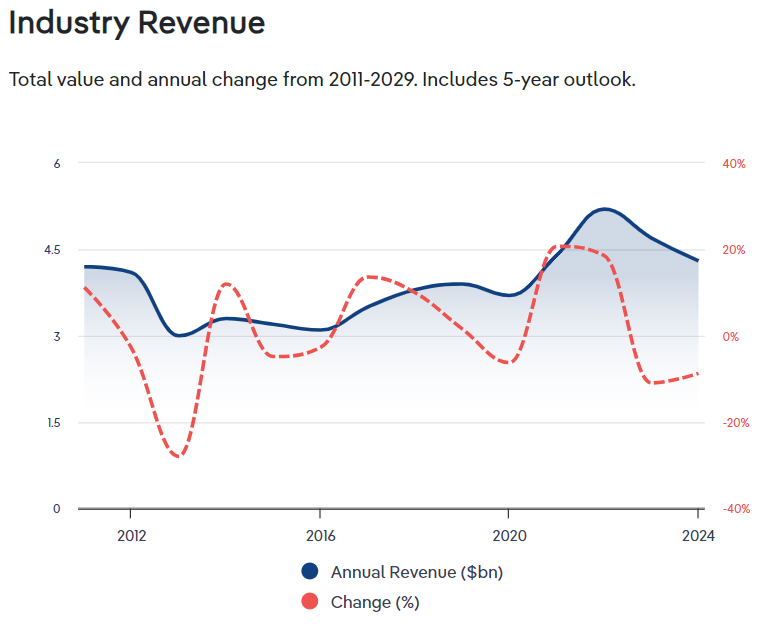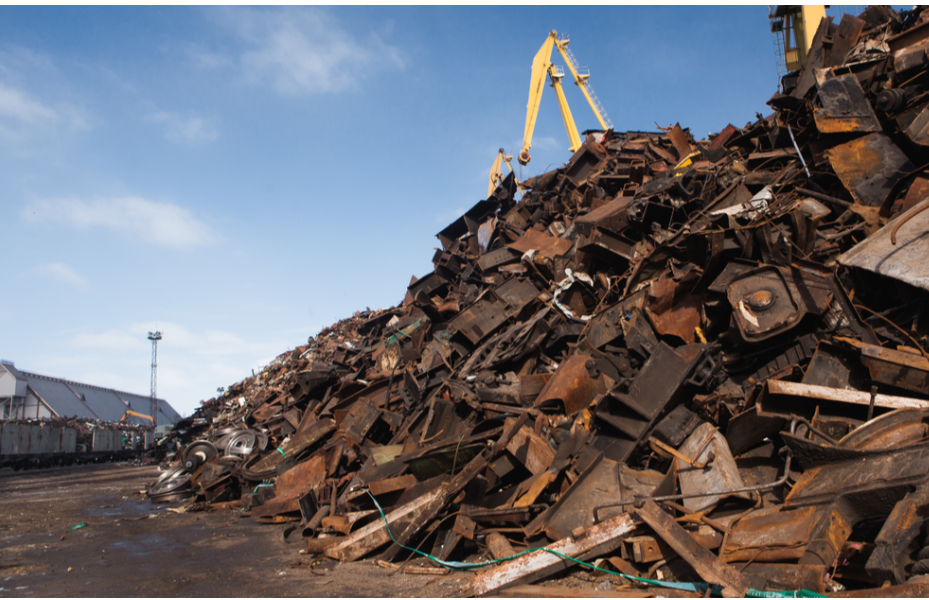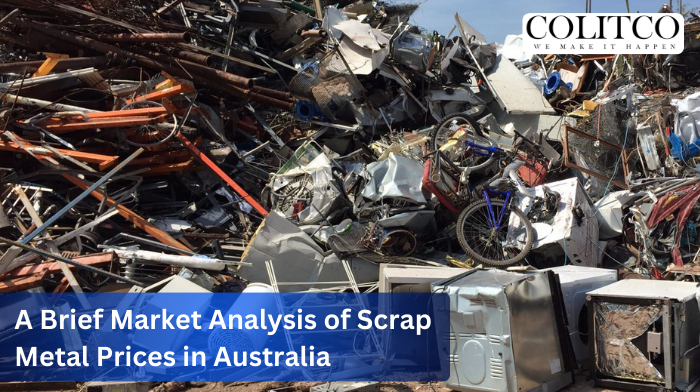
Figure 1: Scrap Metal Recycling in Australia
A Brief Market Analysis Of Scrap Metal Prices in Australia
Scrap metal prices have risen steadily over the last five years, boosting an industry of scrap metal dealers throughout Australia. The scrap metal industry plays a pivotal role in the Australian economy, promoting sustainability and lowering the reliability of new raw materials.
While the industry remains relatively stable, it has experienced underlying volatility due to decreased demand from the construction and manufacturing industries and the sharp increase in steel prices.
Scrap metal prices fluctuate depending on global market trends, supply and demand, recycling rates, and economic conditions. Location within different Australian regions also plays a role in determining scrap metal prices.
In this brief market analysis, we look at the scrap metal industry’s market value and outline the current prices for six of Australia’s most widely traded scrap metals.

Figure 2: Industry Revenue of Scrap Metal in Australia
Scrap Metal: A Brief Market Overview
The scrap metal industry in Australia has a current market value of USD 4.6 billion. It has steadily risen over the last five years at an annualised rate of 1.8%, driven by increased domestic recycling capabilities and significant price jumps in certain metals such as steel.
The construction and manufacturing industries are still experiencing the after-effects of the COVID-19 pandemic, and limited demand has significantly affected the growth of the scrap metal industry. Counteracting this, however, is the sharp rise in steel prices, which is a direct result of China’s industrial stimulus launched in reaction to the COVID-19 pandemic.
Currently, steel prices are at a ten-year high. However, steel is not the only metal industry that has experienced a notable price rise. Below, we look at the current scrap metal prices of six of Australia’s most traded scrap metals.
Aluminium
One of Australia’s most widely traded scrap metals, aluminium is a lightweight, corrosion-resistant metal mainly used in the automotive and manufacturing industries, extensively using recycled aluminium. Aliminium is an energy-intensive metal, and the current price for 1kg scrap metal for aluminium is 1 to AUD 3 per kilogram.
Steel
The most widely traded scrap metal is steel, an alloy of iron and carbon known for its strength and fracture resistance. It is used extensively in the automotive and construction industries. Still, the shift towards electric arc furnace steelmaking, which relies heavily on scrap metal, is becoming a significant industry. Currently, the price for 1kg scrap metal for steel is AUD 0.10 to AUD 0.30 per kilogram.
Copper
Copper is known for its conductivity and anti-corrosive properties. It is extensively traded and used predominantly in the construction, electrical, and manufacturing industries. The current 1 kg scrap copper price is AUD 5 to AUD 10 per kilogram.
Zinc
Zinc is predominantly used in the galvanised steel industry. It is a slightly brittle metal that is also extensively used in manufacturing cosmetics, paint, pharmaceuticals, plastics, and textiles, to name a few. The current price for zinc in 1kg scrap metal is AUD 1 to AUD 2 per kilogram.
Brass
Brass is an in-demand scrap metal used in the plumbing, hardware, and decorative industries. Brass, an alloy of copper and zinc, is known for its durability, corrosion resistance, and conductivity properties. Recycling brass is economically viable, making the brass scrap metal market a favourable industry. The current 1kg scrap metal price for brass is AUD 3.50 – AUD 7 per kilogram.
Lead
Lead is a soft and malleable metal with a relatively low melting point. It is used extensively in manufacturing batteries, and lead recycling is critical given the environmental concerns surrounding lead mining and disposal. The current price for 1kg scrap metal for lead is AUD 1 to AUD 2 per kilogram.

Figure 3: Mound of Unrecycled Scrap Metal
Scrap Metal Prices In Conclusion
Scrap Metal Prices In Conclusion: As the global demand for a more sustainable economy increases, the scrap metal industry, a significant player in this transition, will continue to thrive. Despite geopolitical and other factors influencing pricing, Australia remains committed to recycling scrap metals. Key industry players such as Sims and Infrabuild lead the way, paving a path towards a more sustainable future.











